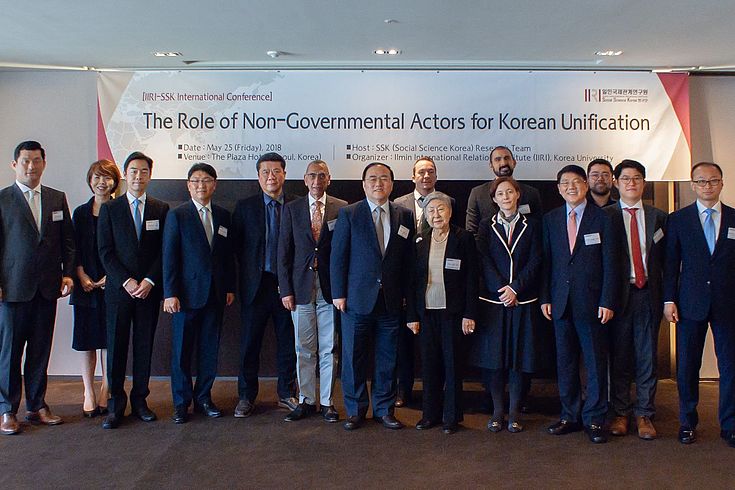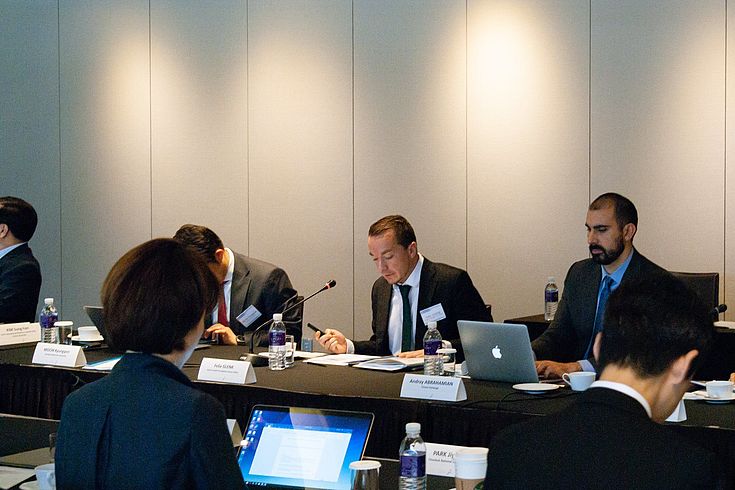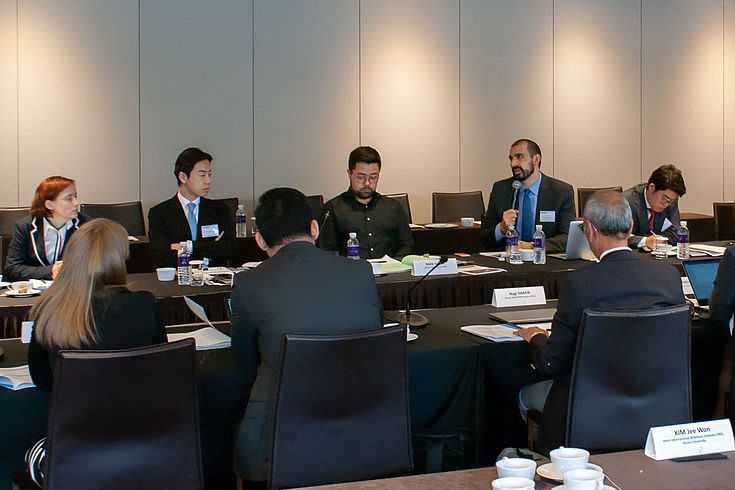International Conference
The Role of Non-Governmental Actors for Korean Unification
Group Photo
HSS
In his opening remarks Kim Sung-han, the director of the IIRI referred to the recent summit of Kim Jong-Eun and Moon Jae-In, and the cancellation of the summit between Kim Jong-Eun and Donald Trump. This, however, should only foster discussions on the situation among different actors and the present event should give a platform to do so. In the first session on development and cooperation Moon Kyungyon of Chonbuk University summarized the development of Civil Society Organizations (CSO) in South Korea over the last decades, reaching from the Great Famine in North Korea in the 1990s, to the Sunshine policy in the 2000s and the more recent conservative governments. He urged on the importance that academics should conduct an in-depth analysis of all different approaches that has been undertaken during that time.
Felix Glenk, Project Manager for DPRK of Hanns Seidel Foundation Korea introduced the organizations' approach to promote environment conservation as a platform for exchange on the Korean Peninsula.
HSS
Felix Glenk, Project Manager for DPRK of Hanns Seidel Foundation Korea introduced the organizations approach to promote environment conservation as a platform for exchange on the Korean Peninsula. He focused on the two major fields of work of the foundation in North Korea, namely projects in the field of reforestation and wetland conservation. He argued that environment cooperation can lead to trust between governments in the region and should remain as unaffected as possible by politics to lead to a sustainable area for dialogue. Recently, HSF supported the accession of North Korea to the Ramsar Convention and the East Asian – Australasian Flyway Partnership through capacity-building. The presentation was followed by Andray Abrahamian, Senior Advisor of Choson Exchange. Abrahamian introduced capacity building in the field of business and entrepreneurship as a way to foster cooperation and exchange with North Korea. Pilju Kim Joo, Dean of the School of Agriculture and Life Sciences of the Pyongyang University of Sciences and Technology added her presentation on cooperation in the field for educational and agriculture. Also, this sector can present another platform for dialogue and exchange. The session was closed by comments of several discussants, including Youngsik of the Korean Sharing Movement, Nagi Shafik, former WHO DPRK Program Officer and Park Jiyoun. Most comments pointed out that development and cooperation is necessary but should always be critical and reflected.
Andray Abrahamian, Senior Advisor of Choson Exchange
HSS
The second session with the title “Security and Human Rights” was opened by Soh Changrok from the Graduate School of International Studies of Korea University, emphasizing that the relation between development and security is sensitive and a balanced approach is important. Hwang Jihwan of the University of Seoul gave a presentation on current status of human rights in North Korea. Joanna Hosaniak emphasized on the importance that each engagement should not ignore human rights issues, and that the road to unification should be peace, economy and human rights. The session was finished by Park Sokeel from Liberty in North Korea (LINK). He stressed that foreign information and the access to it play an important role. He also focused on corruption, cross-border networks and South Korean expectation of unification. The session was discussed by Yang Chang-Seok of the Sunyang Hana Foundation, Sarah Son of the Transnational Justice Working Group and Lee Soohoon of IIRI. Most discussants emphasized that democratization needs to come along with economic development and human rights in a balanced process, but that under no circumstances human rights should be victimized for the benefit of economic development.



